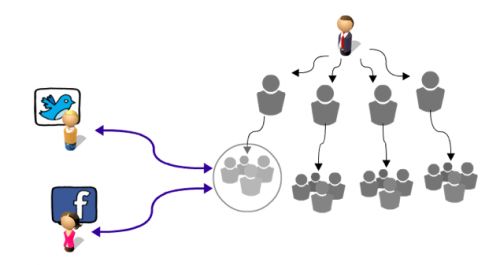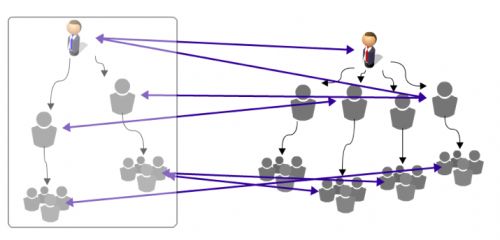Much of the discussion of Social CRM I have seen so far is very consumer focused, with the primary concern of how discussion on social media sites such as Facebook and Twitter can be linked to a company’s CRM systems.
So if someone writes on Twitter
Hey @Apple, why can’t I print from my iPad?
…this finds its way into Apple’s support processes (well, supposing Apple had a Twitter presence, which of course they don’t).
Many people would argue “that’s just dumb… why not go to Apple’s web site and ask them?”, but there is increasing expectation that vendors come to where the users are, not vice versa. Perhaps I’m showing my age by saying this, so I’ll say it quietly, but yes, I find it a bit dumb too.
But does this make sense for B2B Social CRM?
Hey @Boeing, how much volcanic ash can your planes handle?
I can’t quite see airline employees asking questions like that on Twitter, however young and “digital native” they are.
The reality is that B2B customer-supplier relationships are significantly more complex than B2C relationships, and therefore Social CRM for B2B needs to reflect this. So the focus should perhaps be less on Twitter integration, more on reflecting the many-to-many relationships which exist between the customer and supplier. I am not fond of inventing terminology and buzzwords, but like to think of this as “Enterprise Social CRM”.
So, whereas B2C Social CRM typically has simple relationships between individuals and a customer service department:

Enterprise Social CRM may have relationships between individuals and departments throughout the two organisations:

Yesterday, I discussed this subject with one of BroadVision’s major B2B eCommerce customers. They were starting to experiment with a presence on Facebook and YouTube, and I was particularly interested to understand whether their customers (who almost exclusively buy their products for business purposes) would connect with the company through Facebook (which is typically used mainly for personal social networking). Interestingly, although contributions from customers are relatively limited so far, nearly 500 people did become fans quite quickly. The theory is that they have become fans kind of as a “badge of honour” on their profile.
So perhaps much of the B2C model does also apply to B2B. But I don’t believe that Facebook/Twitter alone will be sufficient to represent the complexities of B2B relationships, so these can only serve as outposts of an Enterprise Social CRM strategy.
